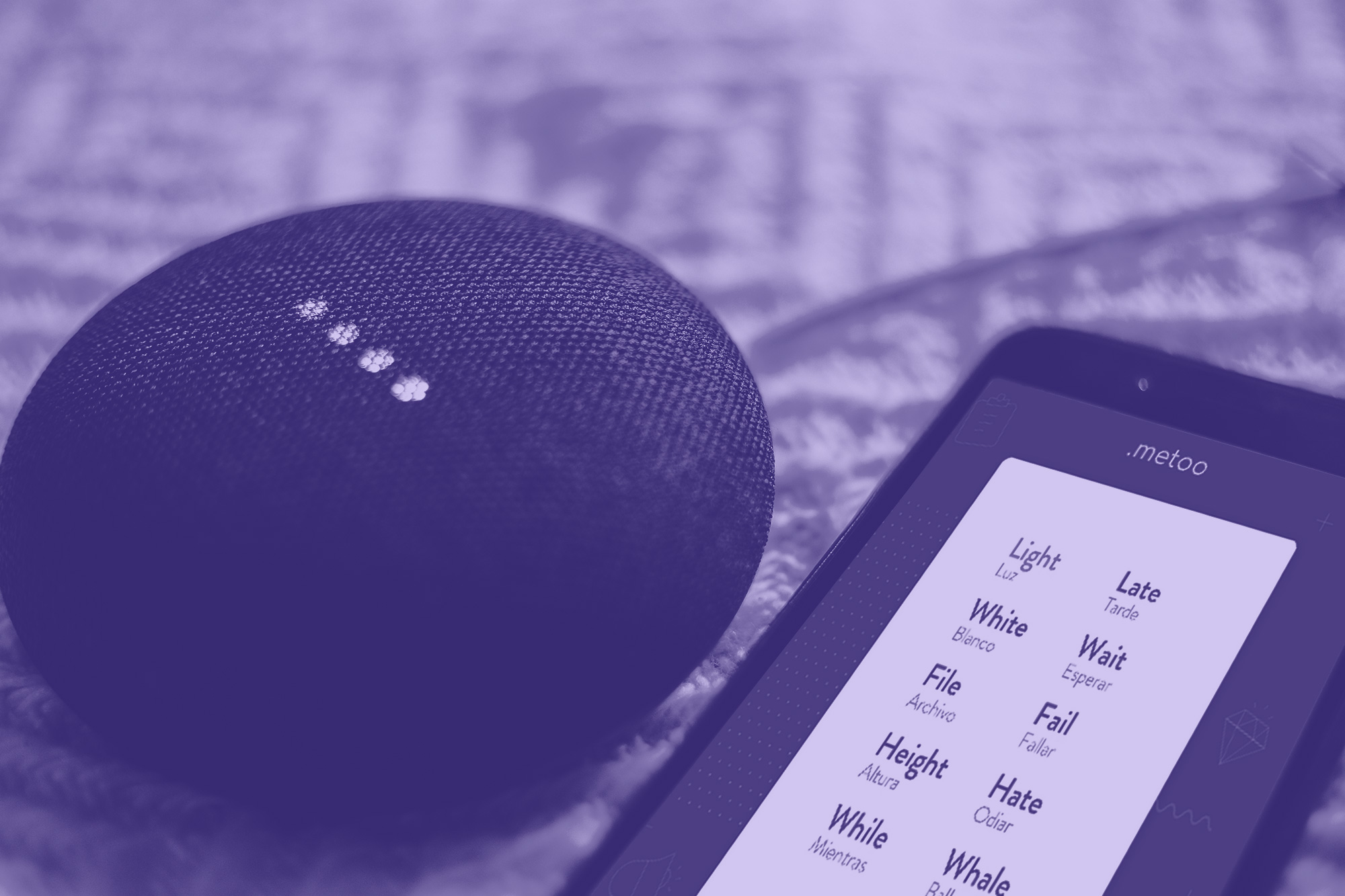Hey buddies! Hoy os dejamos algunos ejemplos para hacer sugerencias en inglés.
Maybe we could…
Why don’t we …?
How about …? (+verb -ing or a noun)
I would suggest…(+verb -ing or a noun)
Examples
Maybe we could go for a beer.
Why don’t we order Thai food?
How about going to the movies?
I’d suggest a Japanese restaurant.
I’d suggest having a coffee.
Esperamos que os resulten útiles!

La habilidad de poder entender cuando estamos aprendiendo un idioma, como por ejemplo el inglés, es una de las que más se nos resisten. En el post de hoy te damos unos consejillos para que puedas mejorar tus listening skills o tu comprensión auditiva y te recomendamos algunos sitios web en los que puedes empezar a practicar
¿Por qué es importante desarrollar esta habilidad de comprensión auditiva?
Muy fácil porque desde pequeños, aprendemos a hablar cuando otras personas nos hablan. Los niños pequeños aprenden su propio idioma sin saber leer ni escribir y mucho menos gramática, así de fácil, es simplemente un ejercicio de «listen & repeat» hasta que poco a poco van comprendiendo y aprendiendo más palabras y frases.
Pues como adultos nos pasa un poco lo mismo, a veces nos cuesta comprender la totalidad de un mensaje y nos esforzamos por intentar entender el 100% de lo que escuchamos, ya sea en una conversación o con cualquier otro tipo de audio (podcasts, series, películas, audiolibros, radio).
A través de la escucha no solo mejoramos nuestra capacidad de comprensión, al mismo tiempo estamos aprendiendo la pronunciación de los sonidos (que en inglés es bastante compleja porque no hay reglas que sirvan para todo). También aprendemos vocabulario e incluso nos acostumbramos a escuchar frases y expresiones de una manera más natural.
¿Qué podemos hacer para mejorar nuestras listening skills?
Pues aquí no hay secretos, como la mayoría de las cosas en la vida, es una cuestión de práctica y esfuerzo. Cuanto más practiques y escuches más fácil te resultará ir comprendiendo cada vez más partes del mensaje. Aunque parezca una tarea titánica podemos empezar poco a poco. Lo más importante es crear una rutina, es preferible practicar por ejemplo 15 minutos todos los días y convertirlo en un hábito para ir adaptando nuestro oído y centrar nuestra atención durante periodos cortos de tiempo y gradualmente ir aumentando los tiempos de escucha y la complejidad de lo que escuchamos.
No te preocupes si no entiendes mucho al principio. Es normal. Todos los que hablamos otro idioma hemos tenido que empezar desde abajo y lo que está claro es que cuando más «input» tengamos, mejor se irá adaptando nuestro oído y si lo conviertes en algo continuo notarás que poco a poco irás pillando cada vez más.
¿Cómo puedo practicar listening por mi cuenta?
Hoy en día podemos encontrar mil maneras de practicar en internet. Puedes escuchar podcasts sobre tus temas favoritos, ver canales de youtube (relacionados o no con el aprendizaje de idiomas), por supuesto ver series y películas en inglés, escuchar diferentes emisoras de radio… Como hay muchísimas posibilidades, para aportar nuestro granito de arena os dejamos algunos sitios con los que puedes empezar a trabajar tus listening skills
elllo
aquí encontrarás una librería de listenings por niveles, desde beginner hasta avanzado, con diferentes temas, incluye transcripciones de los textos y ejercicios de comprensión. Lo mejor, puedes escuchar muchos tipos de acentos de diferentes nacionalidades.
esl-lab
similar al anterior, con bastantes listenings en diferentes niveles y ejercicios de comprensión.
listenaminute
para los muy ocupados, listenings de un minuto, por temas, incluye transcripción y actividades.
BBC
6 minutes English un clásico de la BBC, puedes escucharlo también en formato podcast descargable, incluye transcripción.
British Council
otro «con nombre», de British Council, para practicar listening, también tiene una parte de inglés profesional.
TED
Ted talks, otro clásico de alumnos y también de profesores, más para niveles avanzados, charlas sobre una diversidad de temas, lo bueno, puedes escucharlo en inglés y utilizar los subtítulos (mejor también en inglés).
Y para ponerle un poco de diversión, te gustan las series pero aún no te atreves? prueba éste
Learn English with tv series: clips cortos para practicar tus listening skills con las series más populares, está divertido, te muestra una parte del episodio y vocabulario relacionado, pronunciación, etc, perfecto si no te ves aún viendo un capítulo completo.
Éstos son sólo algunos, hay muchos más que también son interesantes, puedes realizar tu propia búsqueda para encontrar los que más se adapten a tu nivel, a tus intereses, a tus necesidades y si quieres puedes dejarnos un comentario con tus favoritos.
Por cierto, antes de terminar, sabías que en .metoo también tenemos un canal de YouTube?, de momento lo estamos construyendo poco a poco pero lo que sí te puede resultar interesante son nuestras Audio Cards, con las que puedes poner a prueba tu oído y practicar pronunciación, como éstas:
Por último, al hilo de este tema, os queremos pedir vuestra opinión, qué os gustaría encontrar en nuestro canal de YouTube? «it’s a work in progress» es un trabajo en proceso y aunque tenemos muchas ideas nos gustaría saber qué temas te interesan más relacionados con el aprendizaje del inglés, déjanos tus sugerencias en los comentarios. Thanks a million!

Nuevo post sobre phrasal verbs, esta vez le toca el turno a fall. Los phrasal verbs con fall se usan con mucha frecuencia en inglés sobre todo para decir caer(se).
Si bien en español solemos usar siempre el verbo caer sin más, en inglés puede variar en función de la dirección o de la situación. Y si hay tantas formas para decir caer(se) ¿cómo sé cuando usar una u otra? Te contamos el secreto de los phrasal verbs con fall al final del post. Mientras tanto aquí tienes una lista de estos y otros significados esenciales con el phrasal verb fall.
Fall apart
Hacerse pedazos.
E.g.
Some of the old books fell apart in my hands.
Algunos de los libros viejos se hicieron pedazos en mis manos.
Desmoronarse, derrumbarse.
E.g.
After his wife left him, his life fell apart.
Después de que su mujer lo dejara, su vida se derrumbó.
Dejar de funcionar.
E.g.
The old system is in danger of falling apart.
El viejo sistema está en peligro de dejar de funcionar/de desmoronarse.
Fall back on
Confiar, apoyarse en.
E.g.
If I don’t get the job, I still have some savings to fall back on.
Si no consigo el trabajo aún tengo algunos ahorros sobre los que apoyarme.
You can always fall back on your family and friends when things go wrong.
Siempre puedes confiar/apoyarte en tu familia y amigos cuando las cosas van mal.
Fall behind
Retrasarse
E.g.
We fell behind on the project and ended two weeks later.
Nos retrasamos en el proyecto y acabamos dos semanas más tarde.
I’ve fallen behind on my mortgage payment this month.
Me he retrasado en el pago de la hipoteca este mes.
Fall down
Caerse
E.g.
The kid fell down as he was trying to climb the tree.
El niño se cayó cuando intentaba subir al árbol.
Fallar
E.g.
That’s where his argument falls down.
Ahí es donde su argumento falla.
Derrumbarse
E.g.
The bridge is falling down and they will need to repair it.
El puente se está derrumbando y necesitarán repararlo.
Fall over
Caerse
E.g.
Her bike fell over and she hurt her knee.
Su bici se cayó y ella se lastimó la rodilla.
Tropezarse
E.g.
I was just walking around when I fell over a stone.
Iba caminando y me tropecé con una piedra.
Derrumbarse
E.g.
It seems the building is about to fall over.
Parece que el edificio está a punto de derrumbarse.
Fall off
Caerse, desprenderse
E.g.
A button had fallen off his shirt.
Se le ha caído un botón de la camisa.
Be careful, the painting is falling off the wall.
Ten cuidado, el cuadro se está cayendo de la pared.
Caer, descender
E.g.
Sales have been falling off recently.
Las ventas han caído/han descendido recientemente.
Fall out
Caerse
E.g.
I don’t know where my keys are. They must have fallen out of my bag.
No se dónde están mis llaves. Se deben haber caído del bolso.
Caerse, perder (e.g. pelos, dientes)
E.g.
As he grew older, his hair started falling out.
A medida que se hacía mayor, el pelo empezó a caérsele.
Discutir
E.g.
It was the first time Hailey and I had fallen out.
Fue la primera vez que Hailey y yo habíamos discutido.
I fall out with him almost every day.
Discuto con él casi cada día.
Fall for
Enamorarse (también fall in love)
E.g.
She fell for him really quickly when they met.
Se enamoró de él muy rápido cuando se conocieron.
Creerse, caer en la trampa
E.g.
He told me the car was in good condition and I fell for it.
Me dijo que el coche estaba en buen estado y me lo creí.
He is too smart to fall for that trick.
Él es demasiado inteligente para caer en esa trampa.
Fall through
Fracasar
E.g.
Our deal fell through so we didn’t buy the house.
Nuestro trato fracasó, así que no compramos la casa.
Fracasar, quedarse en nada, no suceder (planes)
E.g.
Their plans to go hiking Saturday fell through because it rained.
Sus planes para hacer senderismo el sábado fracasaron porque llovió.
Our plans to rent a beach cottage fell through and we decided to stay home.
Nuestros planes de alquilar una casita en la playa fracasaron y decidimos quedarnos en casa.
Decíamos al inicio del post ¿cómo sabemos cuando hay que usar uno o otro de estos phrasal verbs con fall con el significado de caer(se)? Muy fácil, te contamos el secreto de los phrasal verbs con fall: pues depende de cómo es la caída, veamos el secreto de este significado en particular con el phrasal verb fall a continuación
Si nos caemos hacia abajo o también para dar énfasis, usamos fall down (she fell down the stairs).
Si la caída es hacia un lado o tropezamos, decimos fall over (his bike fell over/ I fell over a stone).
Si algo cae fuera de, usamos fall out (my mobile phone fell out of the bag).
Si se cae o se desprende, decimos fall off (that picture will fall off the wall).
A que ahora ha quedado un poquito más claro? No te olvides de darle un repaso también a los otros phrasal verbs con fall que hemos visto para no caer en la trampa de los phrasal verbs (fall for the tricky phrasal verbs).
Puedes ver otros phrasal verbs relacionados con viajar en este enlace y también estos phrasal verbs con come

